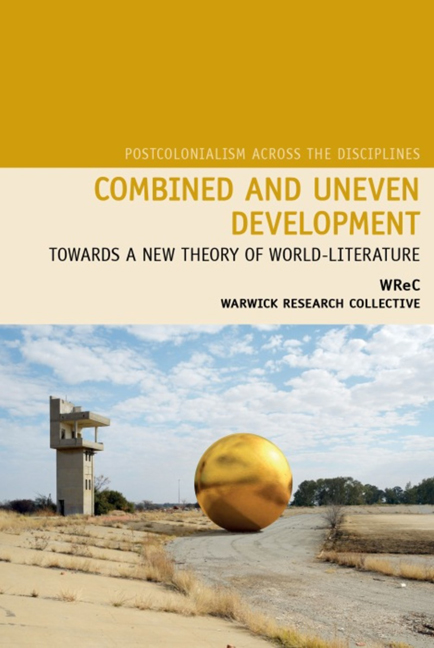Book contents
- Frontmatter
- Dedication
- Contents
- A Note on Collaborative Method
- 1 World-Literature in the Context of Combined and Uneven Development
- 2 The Question of Peripheral Realism
- 3 ‘Irrealism’ in Tayeb Salih's Season of Migration to the North
- 4 Oboroten Spectres: Lycanthropy, Neoliberalism and New Russia in Victor Pelevin
- 5 The European Literary Periphery
- 6 Ivan Vladislavic: Traversing the Uneven City
- Works Cited
- Index
6 - Ivan Vladislavic: Traversing the Uneven City
- Frontmatter
- Dedication
- Contents
- A Note on Collaborative Method
- 1 World-Literature in the Context of Combined and Uneven Development
- 2 The Question of Peripheral Realism
- 3 ‘Irrealism’ in Tayeb Salih's Season of Migration to the North
- 4 Oboroten Spectres: Lycanthropy, Neoliberalism and New Russia in Victor Pelevin
- 5 The European Literary Periphery
- 6 Ivan Vladislavic: Traversing the Uneven City
- Works Cited
- Index
Summary
Johannesburg seems to have no genre of its own.
(Nadine Gordimer 1976 [1958])
Consider three moments in the life of one city:
A 38-year old man is arrested in a shopping mall after he tries to sell a pair of blue eyes;
A man is minding his own business in a bank, trying to withdraw some cash from an automatic teller machine, when his hands burst into flames;
A giant, ramshackle spacecraft appears above the city. Its filthy and sick passengers – ‘aliens’ – are interred in prison camps, where illegal medical experiments are conducted on their dying bodies.
The city, of course, is Johannesburg and only one of these moments is non-fictional, but it may not be immediately obvious which one this is. Taking the first incident as a point of departure in their analysis of ‘postcolonial’ South Africa (the report of the arrest of a man for attempting to sell human body parts in a shopping mall was carried by the leading Johannesburg daily newspaper, The Star, in 1996), Jean and John L. Comaroff detect ‘symptoms of an occult economy waxing behind the civil surfaces of the “new” South Africa’ (1999: 283). This occult economy is characterised in their view by its fusion of cultural elements with long indigenous histories (such as witchcraft) with other cultural elements registering the particular velocities of contemporary ‘globalisation’. The fusion produces what they call ‘millennial capitalism’, one of whose distinguishing features is a pervasive double consciousness:
On the one hand is a perception, authenticated by glimpses of a vast wealth that passes through most postcolonial societies and into the hands of a few of their citizens […] to capital amassed by the ever more rapid, often immaterial flow of value across time and space […] On the other hand is the dawning sense of chill desperation attendant on being left out of the promise of prosperity, of the telos of liberation. (283–84)
The Comaroffs are careful to point out that ‘millennial capitalism’ is a global, and not just a (postcolonial) South African, affair. The recent proliferation of vampires, zombies and witchcraft is surely evocative of a cultural logic of tragic historical contradictions generated by the sheer speed of systematic extraction, abstraction and alienation authored by capitalism in its contemporary, ‘globalised’ phase.
Information
- Type
- Chapter
- Information
- Combined and Uneven DevelopmentTowards a New Theory of World-Literature, pp. 143 - 167Publisher: Liverpool University PressPrint publication year: 2015
